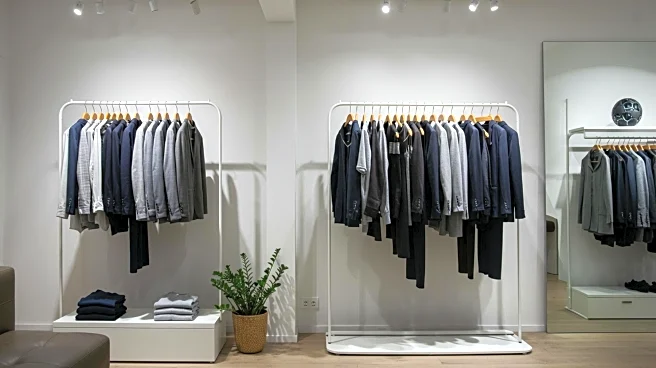What is the story about?
What's Happening?
ThredUp, a leading resale platform, has reported significant growth, achieving profitability for seven consecutive quarters in the U.S. and acquiring a record number of new customers in Q2, marking a 74% year-over-year increase. This growth is attributed to strategic pricing and experience adjustments, alongside favorable economic conditions that drive consumers towards value and domestic goods. The closure of the de minimis loophole has further benefited the resale market by leveling the playing field for domestic and secondhand apparel, increasing costs for fast fashion and reducing their marketing spend. ThredUp's Chief Strategy Officer, Alon Rotem, highlighted the immunity of their supply chain to tariffs, as they source clothes domestically, which contrasts with the challenges faced by fast fashion brands.
Why It's Important?
The rise of ThredUp and the broader resale market signifies a shift in consumer preferences towards sustainable and cost-effective shopping options. This trend is reshaping the retail landscape, challenging traditional fast fashion models that rely on overseas production. The economic pressures, including tariffs and the closure of the de minimis loophole, are forcing fast fashion brands to reconsider their strategies, potentially leading to higher prices and reduced marketing budgets. As consumers increasingly prioritize sustainability and value, resale platforms like ThredUp are positioned to capture a larger market share, influencing the future of retail and consumer behavior.
What's Next?
ThredUp plans to leverage its profitability to expand its offerings, including a forthcoming peer-to-peer service. The company aims to solidify its position in the mainstream retail market, potentially marking a permanent shift from the margins. As AI advancements continue to benefit secondhand retail, ThredUp may further enhance its operations and customer experience. The ongoing economic challenges for fast fashion could lead to more brands exploring resale models or partnerships with platforms like ThredUp to adapt to changing consumer demands.















